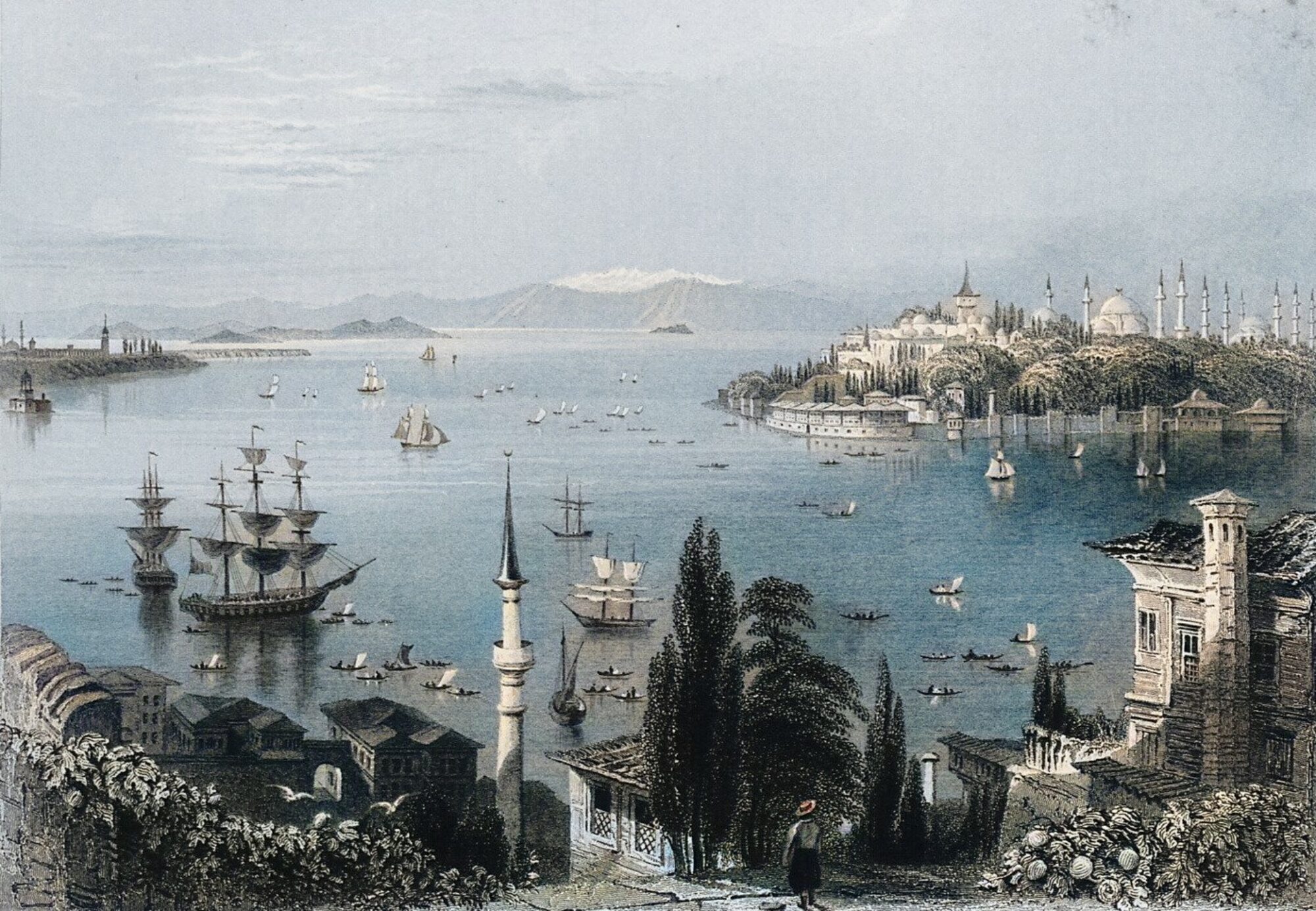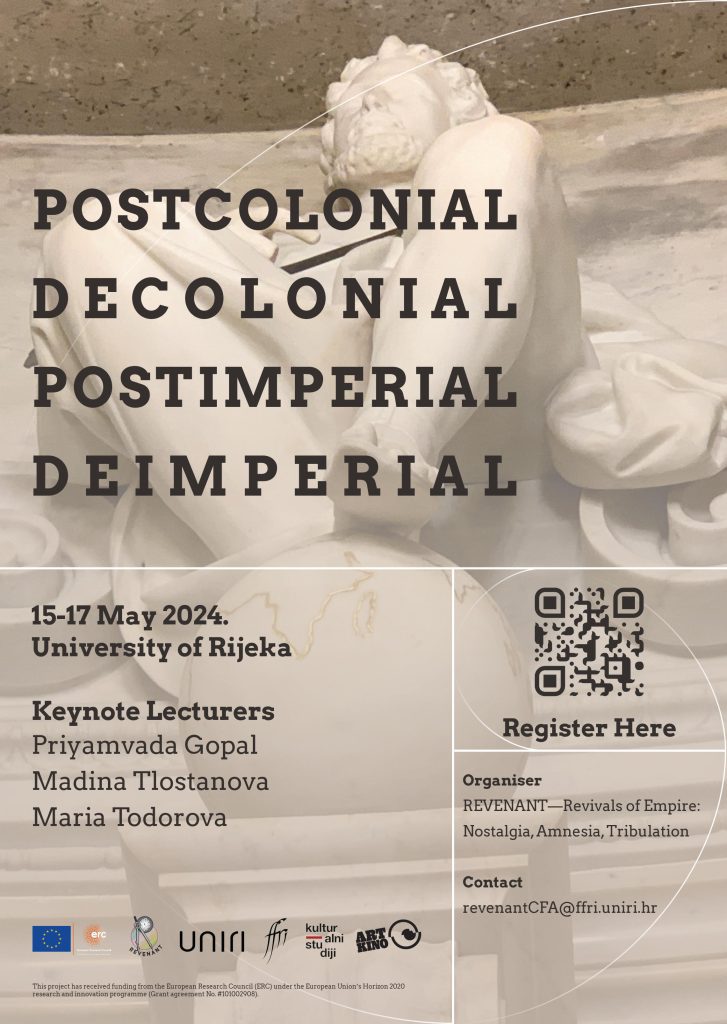The conference program and the book of abstracts can be found here.
If you would like to attend the conference as a member of the audience, please register here.
The conference is scheduled to be held on 15-17 May, 2024, with Priyamvada Gopal, Madina Tlostanova, and Maria Todorova as confirmed keynote lecturers. The conference venue is the Faculty of Humanities and Social Sciences, University of Rijeka, Sveučilišna avenija 4, Rijeka, Croatia.
You are welcome to address any questions or concerns to the following email address: revenantCFA@ffri.uniri.hr
Despite dating back at least half a century, postcolonial studies and the concept of postcolonialism evince no signs of obsolescence in middle age. The theoretical and political questions that postcolonial critique first posed, related to the racialized formations of knowledge-power that sustained colonial regimes and their ongoing effects, have only increased in urgency. Precursors such as Frantz Fanon’s understanding of colonialism as a mode of psychological-subjective subjugation, signature concepts such as Edward Said’s Orientalism and Gayatri Spivak’s subalternity, and more recent coinages such as Achille Mbembe’s postcolony remain both staples of syllabi and inspirations for insurgent subjects.
Several key developments have reframed and reinvigorated postcolonial studies since the turn of the millennium. First, a cadre of critics, initially based in Latin America but soon to extend throughout the Global South, has insisted on the distinctive political and theoretical valence of decolonial, as opposed to postcolonial, critique. Decoloniality, decolonization and their kin terms productively displace the temporal—some argue teleological—logic of postcoloniality. Rather than positing a gap between colonial and postcolonial times, polities, and subjects, decoloniality insists that coloniality is an ongoing formation of knowledge power, and interrogates its myriad of discontents in the present. Secondly, and in tandem with the ascendancy of decoloniality, historians and anthropologists influenced by new imperial historiography have reignited debates over empire, imperialism, and post imperialism with an eye to the ongoing effects of imperiality, its duration and “duress,” in Ann Laura Stoler’s evocative turn of phrase. Intersections and distinctions between the colonial and the imperial have animated this latter debate. Finally, in a related but distinct trajectory of theorization, latter-day Marxists such as Hardt and Negri have made a neo-Leninist argument for understanding the global political-economy of the 21st Century as a universal “empire”. In light of these ongoing, frequently tempestuous debates, our upcoming conference aspires to a comprehensive discussion of the distinctions, contradictions, syntheses and synonymities between and among our four titular key terms: postcolonial, decolonial, postimperial, and de-imperial. The final term is our coinage; we offer it as an object for (de)constructive debate at the conference itself.
The setting for our conference is by no means arbitrary. The city of Rijeka and the Kvarner Gulf of Croatia harbor many imperial legacies, especially Habsburg and Italian, while the regional identities and dilemmas of the Balkans and the Adriatic are bequests of imperial interactions. By gathering at the intersection of multiple imperial semi-peripheries we aim to decenter and recenter questions surrounding imperialism, colonialism, and their conjunctions. Our research group, “REVENANT-Revivals of Empire: Nostalgia, Amnesia, Tribulation” (ERC #101002908), is the sponsor and organizer of the conference (https://revenant.uniri.hr). REVENANT’s purview encompasses the collective memories and ongoing legacies of three empires, the Habsburg, the Ottoman and the Romanov; in this context, the fraught question of the coloniality of these empires—and, hence, the post- and decoloniality of their successor states and societies—is central. Accordingly, one aim of the conference is to open conceptual avenues of debate and collaboration between scholars of largely land-based empires such as those that orient REVENANT and students of overseas settler empires, with particular interest in how concepts of post-coloniality and decoloniality apply, and apply differently, to each of them. More generally, we welcome contributions from a host of disciplines, including Anthropology, Art History, Comparative Literature, Gender Studies, History, International Relations, Memory Studies, and Sociology, that interrogate inter-imperiality in Laura Doyle’s capacious sense.


